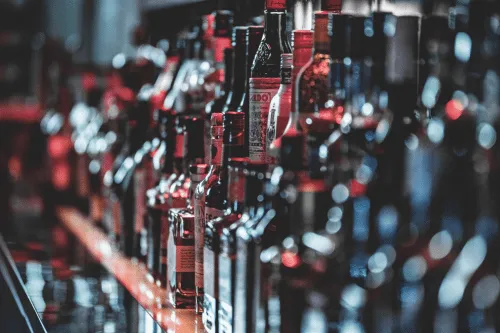
When people begin searching how much is alcohol rehab, cost often becomes the biggest question. The price of treatment varies based on factors like location, insurance coverage, and level of care. At Sullivan Recovery in Mission Viejo, we help patients understand alcohol rehab costs and find solutions that fit their budget, whether through health insurance, payment plans, or other financial support options.
The cost of alcohol rehab depends on several factors, including the level of care—whether it’s inpatient or outpatient—and the length of stay. Inpatient programs include room, meals, and 24-hour medical supervision, while outpatient rehab allows patients to live at home and attend therapy sessions several times a week.
Drug detoxification services, medication-assisted treatment, and dual diagnosis care can also influence the final fee. A patient receiving medication such as naltrexone or methadone for withdrawal or craving management may have higher expenses than those in therapy-based programs alone.
Inpatient rehab centers provide a structured environment ideal for those with severe addiction or co-occurring mental health disorders. These programs tend to have higher alcohol rehab costs due to the intensity of care. Patients receive around-the-clock supervision and access to therapies targeting both substance abuse and mental health needs.
Outpatient rehab, like the programs offered at Sullivan Recovery, provides a more affordable alternative. Patients participate in therapy, group sessions, and relapse prevention education while maintaining daily responsibilities. This level of care reduces the overall price while still delivering effective treatment outcomes.

Thanks to the Affordable Care Act (ACA), most health insurance plans are required to cover substance abuse and mental health treatment. This includes coverage for drug detoxification, therapy, and medications such as naltrexone and methadone. However, the deductible, copay, and coinsurance vary depending on the plan.
Patients should contact their insurance provider to verify coverage, out-of-pocket expense, and in-network rehab centers. Sullivan Recovery accepts most major health insurance plans and works with each patient to determine what part of treatment the insurer will cover.
For patients without full insurance coverage, Sullivan Recovery offers flexible payment options. Many treatment centers provide financing, sliding-scale fees based on income, or scholarship assistance. Some patients also use health savings accounts (HSAs) or medical credit lines to offset costs.
Nonprofit organizations sometimes help fund outpatient services or provide grants for those unable to pay for treatment. The goal is to make care accessible regardless of financial status so every individual can focus on recovery, not expense.
Medical drug detoxification is often the first step in alcohol rehab. The cost of detox depends on the medications used and the level of medical monitoring required. Medications such as methadone, naltrexone, and buprenorphine are commonly used to manage withdrawal symptoms and prevent relapse.
At Sullivan Recovery, detox is supervised by licensed medical professionals to ensure patient safety and comfort. This stage sets the foundation for sobriety and helps patients transition smoothly into therapy and long-term treatment.

Therapy plays a central role in alcohol rehab costs because it addresses the psychological side of addiction. Individual, group, and family therapy sessions teach coping skills and help patients manage triggers that could lead to relapse.
Patients with dual diagnosis—those facing both addiction and mental health conditions—require specialized care. Treating both conditions together is critical to maintaining long-term sobriety. Sullivan Recovery provides integrated treatment for disorders such as depression, anxiety, and PTSD, improving outcomes and overall quality of life.
While exact figures vary, the following general price ranges provide insight into what patients can expect:
These costs reflect national averages across various treatment centers, including both private and nonprofit organizations. Some programs, such as Alpine Recovery or Recovery Village, offer tiered pricing based on the type of care and amenities included.
Sullivan Recovery focuses on affordable, high-quality care in Southern California. Our outpatient model helps reduce expenses while providing access to medical detox, evidence-based therapy, and continuing care support.
Alcohol rehab costs vary across the country. In states like Kansas, treatment tends to be more affordable compared to regions such as California or New York. However, cost should not be the only deciding factor. Patients should evaluate the treatment provider’s credentials, success rates, and the quality of medical and therapeutic services offered.
Sullivan Recovery’s Orange County location offers exceptional care at a competitive cost, ensuring patients receive both value and effective support during their recovery journey.
Creating a realistic budget for treatment helps patients plan financially without added stress. Many people underestimate the total expense of addiction, which includes lost income, legal issues, and declining quality of life.
When comparing alcohol rehab costs, consider not just the price of treatment, but also the value of regaining health, stability, and long-term sobriety. Investing in treatment at Sullivan Recovery can lead to improved relationships, career success, and better mental health outcomes.
The length of stay is a major cost factor. Short-term programs may last 30 days, while extended care can continue for several months. Longer programs allow more time to reinforce healthy habits and prevent relapse, though they come with higher overall fees.
At Sullivan Recovery, clinicians help patients determine the optimal treatment duration based on their progress and needs. The goal is to balance affordability with long-term recovery success.

Each treatment center has a unique pricing structure based on location, staff credentials, and included services. High-end rehabs may charge more due to luxury amenities, but effective treatment does not require premium pricing.
Sullivan Recovery focuses on evidence-based care, ensuring every patient receives access to skilled medical staff, individualized therapy, and relapse prevention tools. Our mission is to make alcohol rehab cost manageable without compromising the quality of treatment.
When mental health disorders accompany alcohol addiction, care becomes more complex. Patients may need psychiatric medication, additional therapy sessions, and specialized evaluations. This can increase alcohol rehab costs, but addressing both conditions leads to better long-term stability.
Sullivan Recovery provides comprehensive support for patients with co-occurring disorders. Our dual diagnosis approach integrates mental health treatment with addiction therapy, giving patients a stronger foundation for lasting sobriety.
Medications like methadone, naltrexone, and buprenorphine play an important role in preventing cravings and reducing relapse rates. The cost of these medications varies, depending on the dosage and treatment duration.
Medication-assisted treatment is often covered under health insurance plans that include substance abuse care under the ACA. For uninsured patients, Sullivan Recovery offers affordable medication programs as part of outpatient detox and maintenance care.
Outpatient services offer a flexible, lower-cost way to continue care after detox or inpatient rehab. Patients attend therapy sessions, group counseling, and medication management appointments several times per week.
At Sullivan Recovery, our outpatient rehab programs support ongoing sobriety while allowing patients to work, study, or care for their families. The reduced cost of outpatient care makes it one of the most accessible ways to maintain long-term recovery.
Sullivan Recovery is committed to providing transparent pricing and financial support for every patient. Our staff helps patients verify health insurance benefits, understand deductibles, and explore financial aid options.
We believe that rehab should be available to everyone, regardless of income or budget. Whether through insurance, flexible payment plans, or assistance from nonprofit organizations, we help patients find a path to treatment that fits their needs.

The true cost of addiction extends beyond finances—it impacts relationships, health, and emotional stability. Investing in treatment restores more than sobriety; it improves mental clarity, physical wellness, and quality of life.
Programs like those at Sullivan Recovery provide insight, structure, and clinical guidance so patients can rebuild their lives. By focusing on recovery now, individuals can prevent future expenses associated with medical emergencies or relapse.
If you’ve been wondering how much is alcohol rehab, remember that cost should never stand in the way of recovery. With the right support, health insurance, and flexible payment plans, quality care is within reach.
Sullivan Recovery in Mission Viejo offers accessible outpatient treatment designed to fit a variety of budgets and personal needs. Our focus is helping each patient achieve long-term sobriety, improve their mental health, and build a stable, fulfilling life free from addiction.
Reach out today to learn more about our alcohol rehab cost options and start your recovery journey with confidence.
Yes. Without insurance, patients typically pay full program rates out of pocket. However, Sullivan Recovery offers flexible payment options, including sliding-scale fees, financing, and referrals to nonprofit assistance programs to help make treatment more affordable.
In some cases, yes. The IRS allows individuals to deduct qualified medical expenses, which may include addiction treatment, therapy, and prescribed medications. Patients should consult a licensed tax professional to confirm eligibility and documentation requirements.
Yes. Many states provide publicly funded or nonprofit treatment centers that offer low-cost or no-cost alcohol rehab options. While availability varies by location, Sullivan Recovery’s admissions team can help connect patients to local or state-supported resources if needed.
Shorter programs, such as 30-day rehab, generally cost less than extended care. However, effectiveness depends on the severity of addiction, mental health needs, and commitment to aftercare. Sullivan Recovery helps each patient find the ideal program length that balances cost and long-term recovery success.